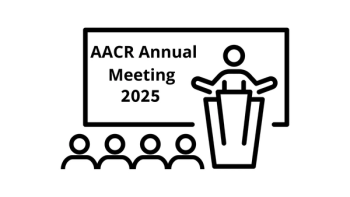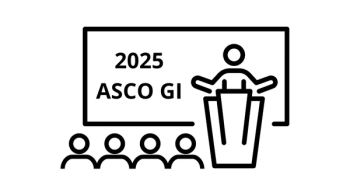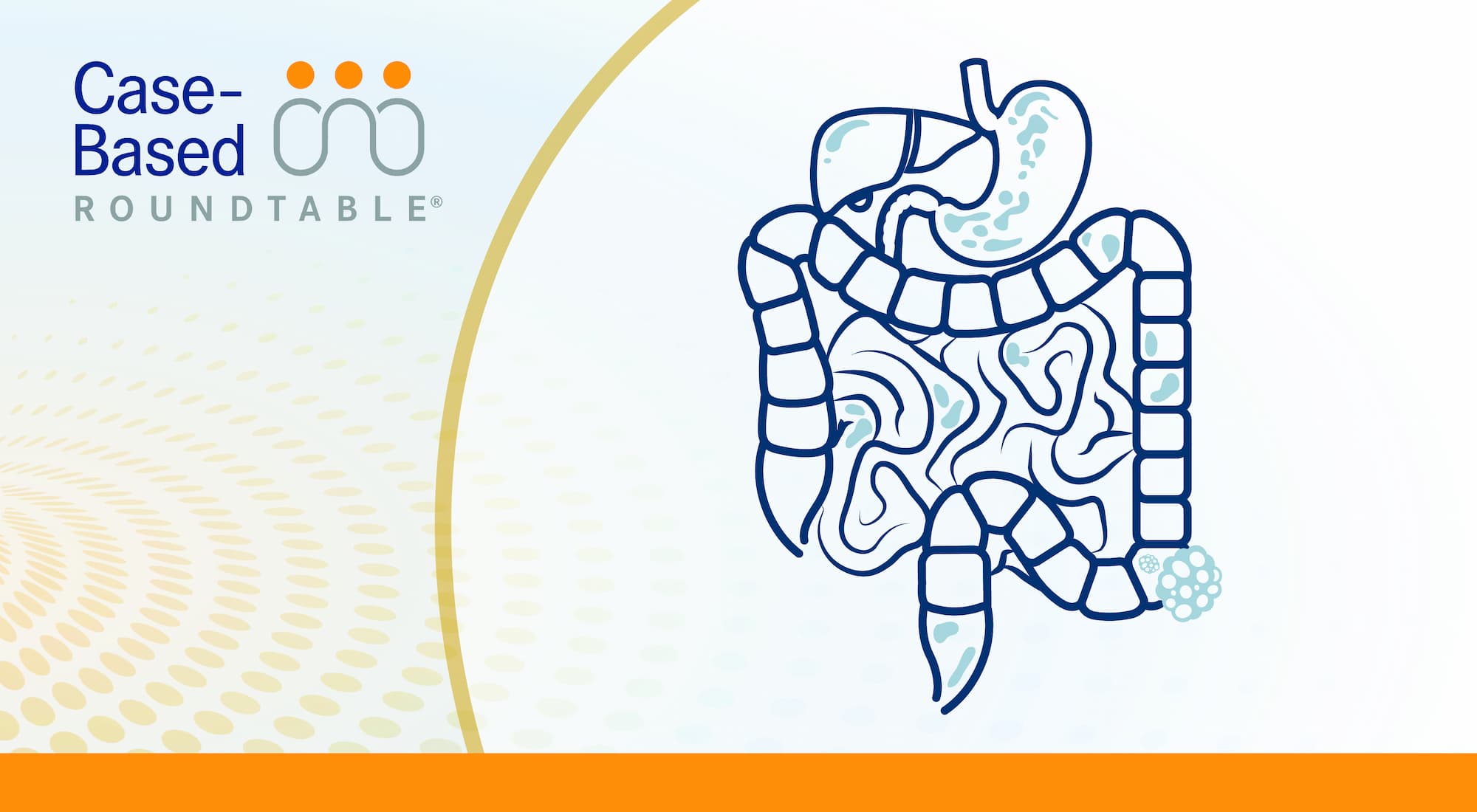
Colorectal Cancer
Latest News
Video Series

Latest Videos
Podcasts
More News

During a live event, Michael J. Overman, MD, discussed biomarker testing, ctDNA, and later-line treatment options for metastatic colorectal cancer.

A novel combination therapy shows promising results in metastatic colorectal cancer, offering improved response rates and survival compared to existing treatments.

Trifluridine/tipiracil shows potential in improving disease-free survival in colorectal cancer patients post-surgery, despite safety concerns.

The vaccine ELI-002 2P showed favorable relapse-free survival and overall survival in patients with pancreatic and colorectal cancer, particularly if they had strong T-cell responses.

A study reveals real-world outcomes of neoadjuvant immune checkpoint inhibitors in nonmetastatic colon cancer, highlighting lower efficacy and increased toxicity.

Cardiff Oncology reveals promising results for onvansertib in treating KRAS- or NRAS-mutated metastatic colorectal cancer, enhancing response rates significantly.

Anbogen Therapeutics gains FDA approval for ABT-301, initiating a pivotal trial for metastatic colorectal cancer, targeting unmet clinical needs.

A recent meta-analysis reveals no link between pathologic complete response and long-term survival in rectal cancer, challenging its use as a surrogate endpoint.

Agenus reveals promising survival rates for its immunotherapy in metastatic colorectal cancer, potentially transforming treatment for resistant patients.

New trial results reveal zanzalintinib and atezolizumab significantly enhance survival in metastatic colorectal cancer, marking a breakthrough in treatment options.

A recent study reveals rising early-onset colorectal cancer rates, highlighting disparities and the need for improved screening and early detection strategies.

With significant survival improvements seen, the FDA has granted approval to retifanlimab for the first-line treatment of advanced anal cancer.

Panitumumab combined with FOLFOX improves survival and reduces recurrence in RAS/BRAF wild-type locally advanced colon cancer.

A groundbreaking study reveals the potential of CISH inhibition in enhancing immunotherapy for metastatic colorectal cancer, showcasing promising patient responses.

Invikafusp alfa elicited clinically meaningful antitumor activity in patients with advanced solid tumors resistant to anti–PD-1/PD-L1 agents.

In an interview with Peers & Perspectives in Oncology, John L. Marshall, MD, discussed treatment approaches and sequencing for refractory colorectal cancer.

Based on data from the phase 3 CheckMate-8HW trial, the combination of nivolumab and ipilimumab has been approved by the FDA in metastatic colorectal cancer.

A phase 2 trial will evaluate leronlimab’s safety and efficacy for the treatment of patients with microsatellite stable metastatic colorectal cancer.

Pembrolizumab and XL888 in advanced CRC showed manageable safety, though limited responses and potential immunomodulatory warrant further investigation.

For Colorectal Cancer Awareness Month, Scott Kopetz, MD, PhD, FACP, discussed the BREAKWATER trial in metastatic BRAF V600E-mutated colorectal cancer.

Nivolumab plus ipilimumab is being reviewed by the FDA as a first-line treatment for advanced colorectal cancer, with a decision expected by June 2025.

Marwan G. Fakih, MD, discussed the implications of the findings from the phase 2 study for patients with microsatellite stable metastatic colorectal cancer without liver metastases.

Bevacizumab's survival benefits in CRC patients persist for about 2 years after starting treatment.

Patients with BRAF V600E-mutant metastatic colorectal cancer experienced poor clinical outcomes with systemic therapy, according to real-world data.

A "watch and wait" strategy after total neoadjuvant therapy showed similar outcomes and safety to total mesorectal in stage II/III rectal cancer.





















































